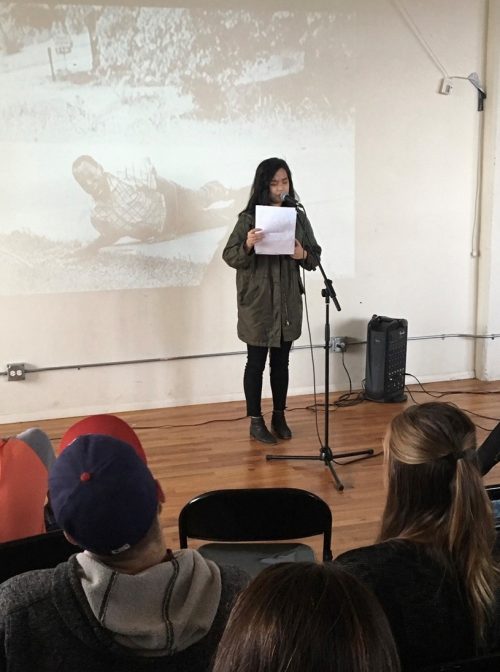We are standing at a precipice as humanity. Will continued conflict take us into the abyss of separation and conflict? Or will we find our way into the sun of commonality and compassion? The answer to that question is playing out in real-time.
Vengeance is the expected reaction to any slight or offense. Our collective conscience has been calloused by the constant threat of violence near and far. How are we poised to respond?

In mid-2015, a tragedy took place when a shooter entered Mother Emmanuel AME church in Charleston, South Carolina. Nine parishioners were enjoying a prayer service in what I imagine to be a peaceful and tranquil environment. Soon after, automatic gunfire shattered the ambiance and thrust the nation into a confrontation with the wounds around race in America. In the wake of this event, I went to play basketball with friends and ruptured my Achilles. It took three months for me to heal, and as I sat immobile, my 10-month-old son ran circles around me. Something about sickness or injury causes us to slow down and consider perspectives we haven’t had before.
I remembered words of encouragement spoken to me for quite some time, forging my purpose to help heal the wounds of race. That July, I believe the concept of forgiveness came to mind from God, and I began to conceive of hosting creative events. Helping cultivate a platform for artists and musicians to speak out about injustice and build a vision of a world where forgiveness could happen. It gave birth to an event and organization called Forgive.Us.
In the Lord’s Prayer, Jesus teaches his disciples how to pray with these words:
Forgive us our debts, as we also have forgiven our debtors. (Matthew 6:12)


With this inspiration, we’ve hosted events in Chicago and nationwide. The goal is to build common ground as a safe space for healing. Many longstanding conflicts are complex in their geopolitical orientation, but something must be said about our capacity for generosity.
Forgiveness is a boon for interpersonal dynamics, helping re-establish trust during a break. Even physiological health is affected by forgiveness.
According to Johns Hopkins Medicine, research shows that forgiving takes genuine, internalized action, reduces the risk of heart attack, lowers cholesterol, improves sleep quality, and dials down blood pressure, pain, and anxiety levels. It counters depression and stress. And the impact of forgiveness keeps growing as people age.
Just as I heard the word forgiveness, the idea continues to resonate that we can help heal the relational wounds of division on a macro scale. The late Archbishop Desmond Tutu said, “There is no future without forgiveness.” The power of forgiveness will one day help love, hope, and compassion re-enter the national conversation around interfaith and intercultural cooperation.
Nathan “Bam” Stanton has been an artist working in mediums that include painting, writing and speaking for over 20 years. His most recent journey included working as a pastor in Chicago for 13 years and founding a not-for-profit, Forgive.Us., an organization dedicated to encouraging artists to speak out about injustice. It’s founding was followed by a 20,000 mile RV trip around the country to host Forgive Us events. His heart is to build a bridge on which division in America can heal. Bam is now embarking on his next mission, to motivate and inspire businesses, organizations and schools into forgiveness, resilience and creativity. His work has been also been featured in WBBM Chicago, RV Today, Rootless and Rova Magazines. He currently resides in Oak Park, Illinois with his wife and 5 children.




